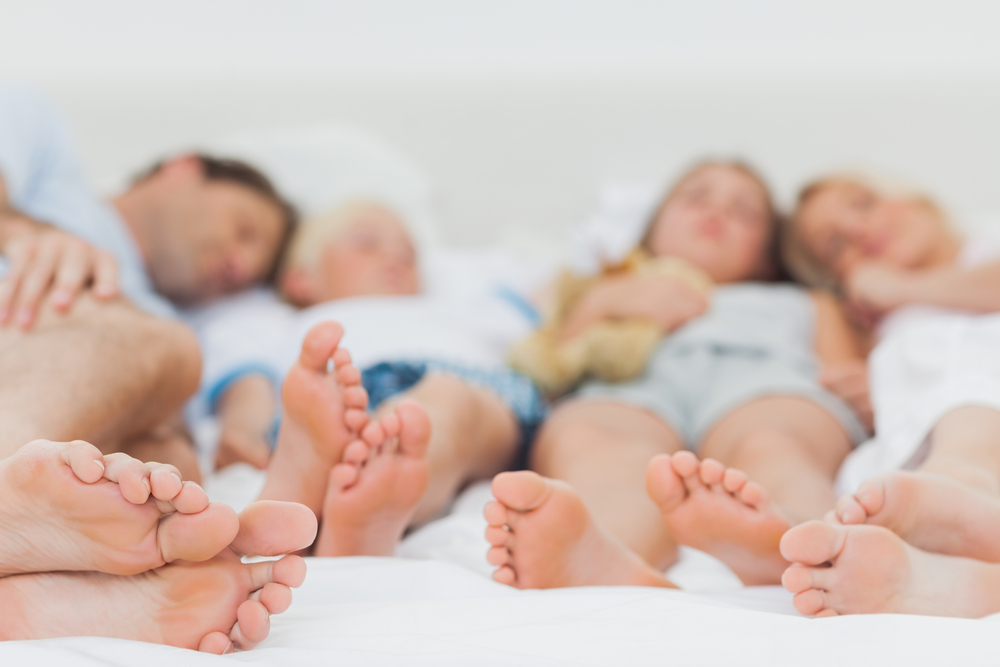Sleep Myths Debunked: 5
It’s no wonder there are so many myths about sleep.
Modern sleep research only really began in the middle of the 20th century, with the milestone discovery of REM sleep in the 1950s.
Before that, sleep was widely regarded as a ‘passive process’ and hence, not of great interest in terms of scientific inquiry.
When it comes to real ‘facts’ about sleep, this relative lack of empirical evidence, has, over the years led to a disproportionate amount of homespun advice, folk wisdom and old-wive’s tales.
There are many mysteries of sleep yet to be solved. The good news is, in the last few decades, science has been able to separate a lot of the fiction from fiction.
Over 11 days, we are exploring some of the scientific research behind 33 of the most commonly held myths and misconceptions about sleep.
13: Everyone needs 8 hours sleep a night
 Scientific studies over the years have proven that we’re not all the same when it come to the amount of sleep we need in order to function optimally the next day. Our sleep requirements also vary over our lifespan; 16 hours is normal for a new-born, whilst adolescents generally need a couple more hours than adults.
Scientific studies over the years have proven that we’re not all the same when it come to the amount of sleep we need in order to function optimally the next day. Our sleep requirements also vary over our lifespan; 16 hours is normal for a new-born, whilst adolescents generally need a couple more hours than adults.
There may be a genetic link to explain why some people can thrive on less sleep, but most of us need, on average between 7 and 8 hours sleep each night.
Interestingly, there are consequences for falling outside of these norms. Sleep deprivation has been well documented as having numerous negative effects on health and well being.
However, it’s possible that oversleeping may have similar untoward effects. In one study, long sleepers were found to be more likely to have a history of depression or drug dependency, and were strongly correlated to unemployment and low soci0-economic status.
14: Night terrors are just bad dreams
Nightmares belong to a class of sleep disorder known as parasomnias, which consist of a wide range of undesirable events that occur along side sleep.
Parasomnias such as sleepwalking, bedwetting (nocturnal enuresis), teeth grinding, (bruxism) and sleep talking are relatively well known and whilst not completely benign, they’re sometimes brushed off lightly as a bit of a joke.
A much more disturbing condition known as night terrors, routinely mistaken for nightmares. Most common in children, night terrors usually occur at the start of the night, during slow-wave sleep.
The sufferer usually awakes in a state of physiological and psychological terror, often accompanied by a loud scream.
Unlike nightmares, most sufferers have no recollection of the episodes in the morning. Thought to be the result of an anomalous partial awakening from slow-wave sleep, fortunately most children outgrow night terrors by the time of adolescence.
15: Early to bed, early to rise, makes a man healthy, wealthy and wise
This quote was made famous by Benjamin Franklin, scientist, polymath and one of the founding fathers of the United States. The ancient Greek philosopher Aristotle was also a fan of early morning productivity, stating ‘It is well to be up before daybreak, for such habits contribute to health, wealth, and wisdom.”
But a study at the University of Liege concluded that these great thinkers have got the facts all wrong.
When comparing larks and owls, they found that there was no noticeable difference in mental performance when the groups were tested in the morning. However, when it came to the evening, the larks performed noticeably worse at most tasks compared to their owl counterparts.
If you’re interested to find out if you’re a owl or a lark you can download a test by Surrey University here.



